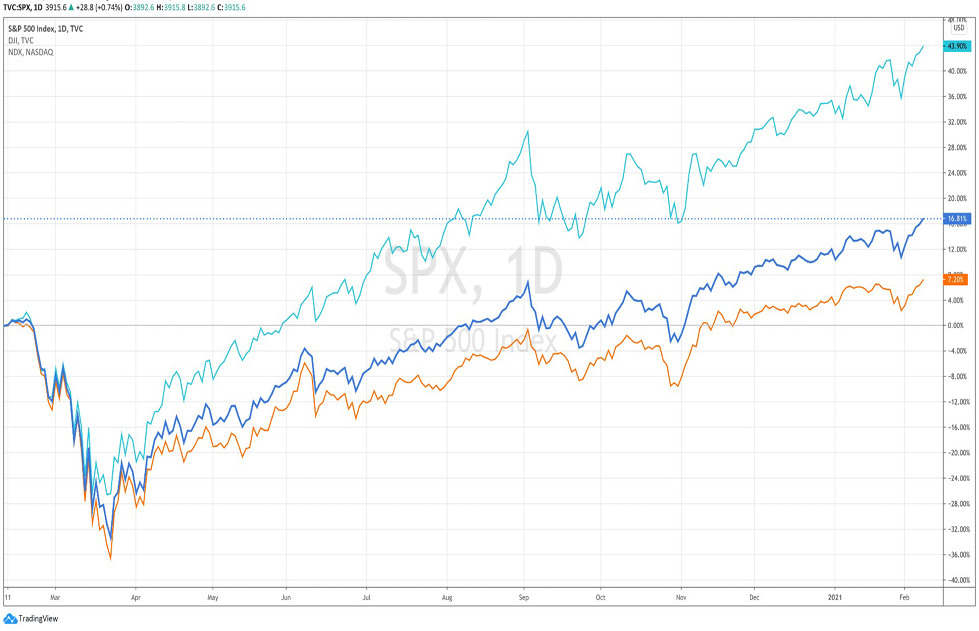What is the stock market? Is it the best way to make money or the quickest way to lose it? Well, the stock market has been the main topic of all sorts of movies, media reports, and the term has been etched into the minds of anyone looking to make some money on the side.
The glamour, the poise and the sophistication of Wall Street have almost reached mythical status among many people worldwide. It goes way beyond buying and selling shares in stock exchanges and it’s not without its reasons.
Sure, it isn’t exactly like The Wolf Of Wall Street, but it’s not that far from the truth either. These days, if you want to be a stock market broker, you don’t even need to live anywhere near the New York Stock Exchange. Sure, it would help if you knew some people who’ve played the stock markets before, but you can play it yourself right from the comfort of your own home.
Stocks, just like many other types of investments, have changed quite a lot since the digital revolution took its full swing, and today, they’re available globally, at prices seen never before. This fantastic accessibility has opened a world of opportunity for buyers and sellers looking to play the stock market.
In this article, we’ll talk a bit about the modern stock market, explain how it works, and give you some tips on how you can dip your toes in the stock trade game.
What is the stock market?
In its most basic definition, the stock market is an aggregation of buyers and sellers who deal with shares. In layman’s terms, it’s a place where people trade portions of public companies. Companies float shares to the stock market to increase their initial public offering (IPO), raising their capital.
As the perceived value of the company grows, so do the values of its shares. These can be either bought or sold and due to the fluctuations in the market, their price will rise or drop. In essence, the stock market is a place where people can buy and sell shares to get a return on their investment (ROI).
People who buy shares in public venues and companies are known as stock traders or stockbrokers.
A brief story of the stock market
To answer your question about the stock market, we’ll have to return to the past for a moment. In the past, the stock market used to be an actual place. Wall street stories aren’t pure fiction – there were offices stocked with hundreds of people who bought and sold stocks like there was no tomorrow, and even they weren’t perfect.
These days, however, the stock market’s story has taken a digital twist, as today, most stock markets, including some brand new ones, are electronic. There are no more phone calls – it’s all just typing on the PC, buying and selling.
While this is regarded as a far more comfortable and appealing solution for many, the electronic stock platforms lack the charm and atmosphere that old stock market company floors used to have. The situation is far less hectic, but the investments and the hazards in the stock markets are just the same.
Stock exchanges have been around for as long as half a millennia. The first company that incorporated and popularized stock trading was the East India Company, which made its fortune trading spices and was also the most valuable company of all time. If adjusted for inflation, the Dutch East India Company would be worth about $8.28 trillion, almost seven times more than Apple, the most valuable company that exists today.
What is the average return for the stock market?
The return you get when you buy and sell shares in the global stock markets will vary widely based on your experience, knowledge, determination, and a little help from lady luck. Another thing that’s going to impact your return drastically is the stock market you invest in.
In general, the average return for the stock market is about 10% per year. That’s the average and has been for quite a while, but at times fluctuations do happen. Just as you have the potential to earn a 50% return each year, you also have the chance to lose all of it if you’re not careful.
In this regard, the S&P 500 is one of the benchmark measures for calculating stock market returns per year, and it’s been at a stable 10-ish per cent for a long while now.
We trade in a community! Start your trading journey now and trade funded accounts, it’s free!
Stock markets vs. other investments
The stock market is far, far from the only thing you can invest in. These days, we’re all entwined and connected through the internet, which means that digital investment is a topic reaching far beyond the stock market.
Through the digital landscape, you can invest in:
- Precious Stones & Metals
- Cryptocurrencies
- Corporate bonds
- Sovereign bonds
- Property Investments
- Annuities
- Commodities
Aside from these, the modern era has brought the investment world online, so you can pretty much trade anything you like on the internet. While the stock market is far from the easiest thing you can trade online, it’s still generally regarded as one of the most fool-proof, safest, and wisest investment opportunities possible.
How does the stock market work?
The stock market works in a pretty simple manner. Companies put their shares up for sale in the secondary market, investors buy them, and once the shares reach the desired price, investors sell them at a profit to new buyers.
While this explanation leaves out a lot of the finer details, it’s basically how the stock market works.
All that’s fine, but is the stock market rigged? Well, no. While it might appear that the big investors are always winning and getting bigger, the stock market is related to so many variables that it would be impossible to rig it.
So no, the stock market isn’t rigged, and it isn’t that complicated either. There are many free stock market simulators and stock market courses for beginners on the internet that will give you a brief or in-depth rundown on this amazing opportunity to cash in.
Most important stock exchanges in the world

Like we’ve stated at the beginning of the article, there isn’t one single stock market to rule them all. It boils down to numerous different indexes on which different company stocks are traded. These indexes are continually reshaping the environment of the stock market on which exchanges trade.
The exchanges are conglomerates of investors and sellers who are continually sharing and trading stocks. Think of a stock exchange as a continuous auction that works day-in and day-out to trade shares of publicly-traded companies.
The most important stock exchanges in the world are:
- New York Stock Exchange – NYSE
- NASDAQ
- Japan Exchange Group
- Shanghai Stock
- Hong Kong Exchanges
- Euronext Europe
- Shenzhen Stock Exchange
- LSE Group
- TMX Group
- BSE India
By far the biggest one out of all these is the NYSE, the New York Stock Exchange, as it’s worth a staggering $25.53 trillion as of March 2020, a whopping $14.3 billion more than the second-biggest stock exchange in the world, NASDAQ (National Association of Securities Dealers Automated Quotations Exchange).
What drives the stock market?
The stock market is the manifestation of the free market simplest principle – supply and demand. The more people become interested in stock and want to purchase it rather than selling it, the more the price rises. If more people are looking to sell the stock than to buy it, the price moves down.
People buying stocks represent the demand, and people selling the stocks manifest the supply.
The second the supply exceeds the demand, the price of the individual stock starts to plummet., and vice versa. That’s the simplest way to explain how stock prices fluctuate, but it’s far more complex in reality.
There are more variables in the stock market than there are human beings on the planet. Every minimal action, every minute detail, and every minuscule change could impact the shareholder’s choice of buying or selling, making the stock market more than just dynamic.
Popular stock market strategies
There are many strategies to handle the copious amounts of variables in the stock market. If you’re a beginner, you can choose from four different trading styles, which are:
Day Trading
Day trading is the simplest style to get the hang of it. It involves sitting in front of the screen and monitoring how the stocks are performing. Once one goes up, you sell it – once one goes down, you buy it.
When you invest in day trading strategies, you buy and sell stock shares within the same day. In that line, you should close your positions before the end of the trading session.
Position Trading
Trading positions is slightly more complex than day trading, but not by far. Buyers and sellers identify the direction they want to trade by determining the dominant trend in the given stock. To identify the trend, traders use numerous data points and charts, and they invest accordingly.
Swing Trading
Trends are like one-hit wonders. They break out with a superstar hit, disappear, and reappear at a steady rate. That’s how trends in stocks work too, and if you want to swing trade, you’ll want to buy and sell shares while the trend is hot and call the position off once it starts changing its direction.
Scalping
Scalping is a slightly more complex trading style. It involves investing in a particular stock once the price drops due to order flows and other variables. You buy at the smallest possible bid and sell at an asking price as soon as possible. It’s more dynamic and less user-friendly than other methods of trading.
The idea behind all kinds of trading strategies is that price action usually follows patterns, and the ability to anticipate those movements shows you how the stock market works.
Each of these has quite a lot of sub-strategies within it, and there are far more methodologies for stock trading than these four – they are just the best options for new investors.
Keen to trade, but don’t have money? No problem! Try a funded account for free and start your trading journey now!
Pros and cons of the stock market
While full of hope and potential, the stock market isn’t the easiest or best investment in the world. It comes with its fair share of drawbacks. However, just because there are drawbacks doesn’t mean that the stock market isn’t a great way to make a lot of money.
Here are the main pros and cons when you buy and sell shares in the stock market:
Pros:
- You can make good money
- You can achieve profits quickly
- It’s easy to get into
- It’s flexible
- It works as a day job
- It has fantastic liquidity
- It offers great scaling
- You can follow a single stock all the time and it offers different opportunities
Cons:
- The stock market entitles high risks
- You can lose money quickly
- It’s tough to master
- It’s very volatile
- It can be very stressful
In conclusion
The stock market is one of the most exciting ways to make money in the world. While it lacks the charm that countless movies portray, it’s still a vast, adrenaline-fuelled world of potential, promise, and chance.
If you were wondering what the stock market was, we here at OneUp Trader hope that we’ve introduced you to the subject and made it easier to understand. As long as you’re smart with your investments and take care of business, we’re sure that you’ll have a great time trading on the stock market. Just make sure to keep your expectations realistic – if something sounds too good to be true, it probably is.
Do you want to try a funded account? Start your trading journey now, it’s free!





